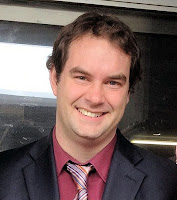I recently read a news article which gave estimates of the amount of time left for certain non-renewable resources. Aluminum could be gone within ten years, oil within fifty. Oil, on which not only do our cars run, but from which the vast majority of the plastic bottles and bags and parts of TVs, cars, computer games and pretty much everything else you can think of are made. Even if you've never driven a car, fossil fuels and their products help you through a significant part of your life.
I don't want to preach, because I'm a typical consumer. Today alone I bought three PET bottle drinks (it was hot, and vending machines, as you probably know, are everywhere in Japan – 5 million of them to be exact). I got to thinking just how little drink was contained in one of those bottles, and how much manufacturing had gone in to produce a container that provided a drink which gave me about five minutes of pleasure. And I thought about how even though I put that bottle into the recycling bin at my local convenience store, how many others are just dumped in landfills or burned, and how it would be so much better if they didn't exist in the first place.
I also have a car, albeit a “kei” car (660cc) and an air-conditioner. I travel on trains, fly overseas a couple of times a year, eat a bunch of stuff that comes in plastic wrap, leave lights on when I probably shouldn't, have more showers than are probably necessary. I do loads of stuff that can directly or indirectly contribute to global warming. While I try to walk or cycle as much as possible, use an eco-bag in the convenience store or supermarket, have a small garden and try (try …) not to eat fast food, the net damage I cause to the environment is still way more than it should be. And I'm just one person. There are some four billion of us on the Earth, and I'm certainly not the only consumer of fossil fuels.
In The Cold Pools, Lewis and Karen live in a world where global warming has caused such a depletion of ozone that the only place left where naturally cold water can be found is in a small mountain resort town in Antarctica. The rest of the world is a charred waste.
Lewis and Karen have no hope. There will be no future for them. Lewis only wants to give his dying wife one last special present, the chance to see naturally cold water.
We don't live in that future. We live now, and we still have a chance to make a positive change. I'm not going to tell anyone how to live their lives, only ask that you be aware of what's happening around you and always try to think of ways to save, to protect, to improve the world.
I really enjoyed writing The Cold Pools, but it made me so sad. However, I think it is a good story, with a good message. I hope you enjoy reading it.
The Cold Pools by Chris Ward
FREE on Amazon July 3rd to 5th
and see his blog 'A Million Miles from Anywhere'










